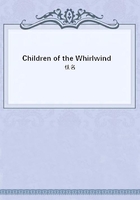11. From these two distinct rights (the one of punishing the crime, for restraint and preventing the like offence, which right of punishing is in everybody, the other of taking reparation, which belongs only to the injured party) comes it to pass that the magistrate, who by being magistrate hath the common right of punishing put into his hands, can often, where the public good demands not the execution of the law, remit the punishment of criminal offences by his own authority, but yet cannot remit the satisfaction due to any private man for the damage he has received. That he who hath suffered the damage has a right to demand in his own name, and he alone can remit. The damnified person has this power of appropriating to himself the goods or service of the offender by right of self-preservation, as every man has a power to punish the crime to prevent its being committed again, by the right he has of preserving all mankind, and doing all reasonable things he can in order to that end. And thus it is that every man in the state of Nature has a power to kill a murderer, both to deter others from doing the like injury (which no reparation can compensate) by the example of the punishment that attends it from everybody, and also to secure men from the attempts of a criminal who, having renounced reason, the common rule and measure God hath given to mankind, hath, by the unjust violence and slaughter he hath committed upon one, declared war against all mankind, and therefore may be destroyed as a lion or a tiger, one of those wild savage beasts with whom men can have no society nor security. And upon this is grounded that great law of nature, "Whoso sheddeth man's blood, by man shall his blood be shed." And Cain was so fully convinced that every one had a right to destroy such a criminal, that, after the murder of his brother, he cries out, "Every one that findeth me shall slay me," so plain was it writ in the hearts of all mankind.
12. By the same reason may a man in the state of Nature punish the lesser breaches of that law, it will, perhaps, be demanded, with death? I answer: Each transgression may be punished to that degree, and with so much severity, as will suffice to make it an ill bargain to the offender, give him cause to repent, and terrify others from doing the like. Every offence that can be committed in the state of Nature may, in the state of Nature, be also punished equally, and as far forth, as it may, in a commonwealth. For though it would be beside my present purpose to enter here into the particulars of the law of Nature, or its measures of punishment, yet it is certain there is such a law, and that too as intelligible and plain to a rational creature and a studier of that law as the positive laws of commonwealths, nay, possibly plainer; as much as reason is easier to be understood than the fancies and intricate contrivances of men, following contrary and hidden interests put into words; for truly so are a great part of the municipal laws of countries, which are only so far right as they are founded on the law of Nature, by which they are to be regulated and interpreted.
13. To this strange doctrine- viz., That in the state of Nature every one has the executive power of the law of Nature- I doubt not but it will be objected that it is unreasonable for men to be judges in their own cases, that self-love will make men partial to themselves and their friends; and, on the other side, ill-nature, passion, and revenge will carry them too far in punishing others, and hence nothing but confusion and disorder will follow, and that therefore God hath certainly appointed government to restrain the partiality and violence of men. I easily grant that civil government is the proper remedy for the inconveniences of the state of Nature, which must certainly be great where men may be judges in their own case, since it is easy to be imagined that he who was so unjust as to do his brother an injury will scarce be so just as to condemn himself for it. But I shall desire those who make this objection to remember that absolute monarchs are but men; and if government is to be the remedy of those evils which necessarily follow from men being judges in their own cases, and the state of Nature is therefore not to be endured, I desire to know what kind of government that is, and how much better it is than the state of Nature, where one man commanding a multitude has the liberty to be judge in his own case, and may do to all his subjects whatever he pleases without the least question or control of those who execute his pleasure? and in whatsoever he doth, whether led by reason, mistake, or passion, must be submitted to? which men in the state of Nature are not bound to do one to another.
And if he that judges, judges amiss in his own or any other case, he is answerable for it to the rest of mankind.
14. It is often asked as a mighty objection, where are, or ever were, there any men in such a state of Nature? To which it may suffice as an answer at present, that since all princes and rulers of "independent" governments all through the world are in a state of Nature, it is plain the world never was, nor never will be, without numbers of men in that state. I have named all governors of "independent" communities, whether they are, or are not, in league with others; for it is not every compact that puts an end to the state of Nature between men, but only this one of agreeing together mutually to enter into one community, and make one body politic; other promises and compacts men may make one with another, and yet still be in the state of Nature. The promises and bargains for truck, etc., between the two men in Soldania, in or between a Swiss and an Indian, in the woods of America, are binding to them, though they are perfectly in a state of Nature in reference to one another for truth, and keeping of faith belongs to men as men, and not as members of society.
15. To those that say there were never any men in the state of Nature, I will not oppose the authority of the judicious Hooker (Eccl.
Pol. i. 10), where he says, "the laws which have been hitherto mentioned"- i.e., the laws of Nature- "do bind men absolutely, even as they are men, although they have never any settled fellowship, never any solemn agreement amongst themselves what to do or not to do; but for as much as we are not by ourselves sufficient to furnish ourselves with competent store of things needful for such a life as our Nature doth desire, a life fit for the dignity of man, therefore to supply those defects and imperfections which are in us, as living single and solely by ourselves, we are naturally induced to seek communion and fellowship with others; this was the cause of men uniting themselves as first in politic societies." But I, moreover, affirm that all men are naturally in that state, and remain so till, by their own consents, they make themselves members of some politic society, and I doubt not, in the sequel of this discourse, to make it very clear.















